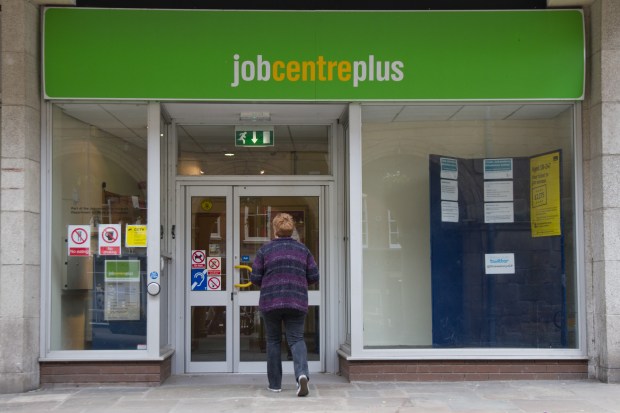Business
Jobless Youth Face Benefits Cuts if They Reject Paid Work Offer

Young individuals who are currently unemployed may see their benefits cut if they decline a new government initiative aimed at providing paid work opportunities. The initiative, known as the Youth Guarantee scheme, has been proposed by Chancellor Rachel Reeves as a measure to reduce the welfare bill and prevent young people from relying on benefits for extended periods.
Under this new scheme, any young adult who has been on Universal Credit for 18 months without engaging in work or education will be offered a paid work placement. Additionally, the programme promises a guaranteed position in either a college or an apprenticeship, allowing participants the chance to acquire valuable skills and training in various trades. The focus of this initiative is primarily on individuals aged 18 to 21.
While the intentions behind the Youth Guarantee scheme are clear, concerns have arisen regarding its timing and effectiveness. The UK’s unemployment rate recently reached a four-year high, exacerbated by a rise in national insurance, which many attribute to a slowdown in the job market. This backdrop raises questions about the viability of the proposed solutions.
In her upcoming conference speech, Reeves is expected to emphasize the importance of maximizing the potential of young people. She plans to state, “I will never be satisfied while too many people’s potential is wasted, frozen out of employment, education, or training. There’s no defending it. It’s bad for business, bad for taxpayers, bad for our economy, and it scars people’s prospects throughout their lives.”
The issue of youth unemployment is significant, with nearly one million individuals aged 16 to 24 classified as NEETs, meaning they are not in education, employment, or training. This figure represents approximately 12 percent of this age group and has increased by nearly a third over the last four years.
Further details regarding the Youth Guarantee scheme are anticipated to be unveiled in the November 2023 Budget, where the government will outline the financial implications and operational specifics of the initiative.
Critics of the government’s approach, including Shadow Chancellor Sir Mel Stride, argue that the administration is effectively discouraging businesses from hiring young workers. Stride contends that “You don’t get more young people into work by punishing the very businesses that hire them. The answer isn’t more taxpayer-funded schemes — it’s growth, lower taxes, and a pro-jobs economy.” This statement underscores the ongoing debate about the best strategies to combat youth unemployment in the UK.
As discussions around the Youth Guarantee scheme continue, the government faces the challenge of addressing both the immediate needs of jobless youth and the broader economic context that influences employment opportunities.
-

 Health3 months ago
Health3 months agoNeurologist Warns Excessive Use of Supplements Can Harm Brain
-

 Health3 months ago
Health3 months agoFiona Phillips’ Husband Shares Heartfelt Update on Her Alzheimer’s Journey
-

 Science1 month ago
Science1 month agoBrian Cox Addresses Claims of Alien Probe in 3I/ATLAS Discovery
-

 Science1 month ago
Science1 month agoNASA Investigates Unusual Comet 3I/ATLAS; New Findings Emerge
-

 Science4 weeks ago
Science4 weeks agoScientists Examine 3I/ATLAS: Alien Artifact or Cosmic Oddity?
-

 Entertainment4 months ago
Entertainment4 months agoKerry Katona Discusses Future Baby Plans and Brian McFadden’s Wedding
-

 Science4 weeks ago
Science4 weeks agoNASA Investigates Speedy Object 3I/ATLAS, Sparking Speculation
-

 Entertainment4 months ago
Entertainment4 months agoEmmerdale Faces Tension as Dylan and April’s Lives Hang in the Balance
-

 World3 months ago
World3 months agoCole Palmer’s Cryptic Message to Kobbie Mainoo Following Loan Talks
-

 Science4 weeks ago
Science4 weeks agoNASA Scientists Explore Origins of 3I/ATLAS, a Fast-Moving Visitor
-

 Entertainment4 months ago
Entertainment4 months agoLove Island Star Toni Laite’s Mother Expresses Disappointment Over Coupling Decision
-

 Entertainment3 months ago
Entertainment3 months agoMajor Cast Changes at Coronation Street: Exits and Returns in 2025









